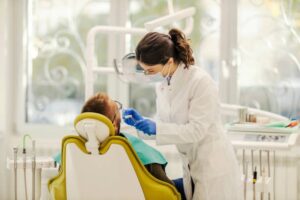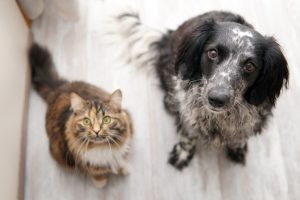
When it comes to the health and well-being of our beloved pets, understanding the ins and outs of veterinary surgical procedures is crucial. Many factors can impact the safety and cost of surgeries. In this comprehensive guide, we’ll explore all the essential aspects of veterinary surgical procedures, from pre-surgical examinations to post-operative home care. Armed with this knowledge, you’ll be better equipped to collaborate with your vet to ensure that your pet receives the best possible care.
Pre-surgical examination
A crucial first step in any veterinary surgical procedure is the pre-surgical examination. This allows the veterinarian to become familiar with your pet’s history and physical condition, which is essential for ensuring a safe surgical experience. The pre-surgical examination helps to identify any potential health issues that could complicate the surgery or pose risks during anesthesia. Ultimately, establishing trust between you and your veterinarian is an invaluable aspect of this process.
Pre-surgical blood testing
Depending on the type and complexity of the surgery, pre-surgical blood testing may be necessary. These tests can help identify potential issues and confirm that your pet is healthy enough for anesthesia and surgery. Especially for older animals or those with existing health concerns, blood tests can be a vital aspect of the pre-surgical process.
Pre-operative analgesics and sedatives
Before the surgery, administering pre-operative analgesics and sedatives is crucial to ensure your pet’s comfort and minimize anxiety. These medications play a vital role in managing pain and promoting a smoother induction and recovery process. Giving these medications early can help reduce the amount of pain your pet experiences later on, making for a more comfortable surgical experience overall.
Intravenous fluids and injectable induction
Intravenous fluids are essential during surgery, as they help maintain proper blood pressure and hydration levels in your pet. Furthermore, injectable induction agents are often preferable to inhalants, as they ensure a rapid and peaceful induction and allow for greater control over the anesthetic depth.
Intubation and gas anesthetics
Intubation, or the insertion of an endotracheal tube to control and protect the pet’s airway during surgery, is vital to ensuring your pet’s safety. Gas anesthetics are widely utilized in veterinary surgery due to their reliability and ease of control. Using gas anesthetics can help facilitate a smoother recovery process for your pet.
Anesthetic monitoring
Effective anesthetic monitoring throughout the surgical procedure is crucial for your pet’s safety. A professional veterinary internist can greatly assist in this process by monitoring your pet’s vital signs and ensuring any issues are addressed promptly. Registered Veterinary Technicians (RVTs) play a particularly important role in monitoring your pet’s well-being and ensuring a successful surgery.
Surgical sterility and maintenance of body temperature
Strict hygiene standards and proper surgical sterility are essential to minimizing the risk of infection and post-operative complications. Furthermore, maintaining your pet’s body temperature during surgery can significantly impact their metabolism, drug processing, and overall recovery process.
Monitored recovery and post-operative analgesia
After the surgery, it’s crucial for your pet to have a closely monitored recovery process, during which any potential issues or complications can be promptly addressed. Post-operative pain management is essential to ensure your pet’s comfort and prevent any unnecessary suffering as they recover.
Veterinary Internal Medicine
Some surgical procedures may also involve the realm of veterinary internal medicine, including treatment of diseases and conditions that affect the body’s internal organs and systems. In these cases, working with a knowledgeable and experienced veterinary professional is vital to ensure proper care and treatment are provided.
Veterinary Surgery
Should your pet require a more specialized surgical procedure, consult a veterinarian with experience in lenvagenarian surgery. These experts are uniquely qualified to perform complex and delicate procedures, providing the best possible care for your pet. Visit this link to get more information.
Cat & Dog Vaccination
As part of your pet’s overall health regimen, it is essential to stay up-to-date with important cat vaccinations and dog vaccinations. Regular vaccinations can help protect your furry friends from a range of common and potentially dangerous diseases while ensuring they stay healthy for years to come.
Immediate post-surgical home care
Providing proper post-surgical care is essential for a smooth recovery, and deciding whether to keep your pet at the clinic overnight or bring them home depends on your unique situation and preferences. Either way, it’s important to have a plan in place for potential complications, and ensure you’re in close contact with your veterinarian for guidance and support.
Conclusion
As a pet owner, understanding the complex world of veterinary surgical procedures is a necessary step to ensure your furry friend’s safety, comfort, and overall health. By becoming familiar with the various aspects of these procedures, you can make well-informed decisions and work closely with your veterinarian to provide the best possible care for your beloved pet. Always prioritize your pet’s safety and well-being, and never hesitate to consult with a professional if you’re unsure about any aspect of their care.








